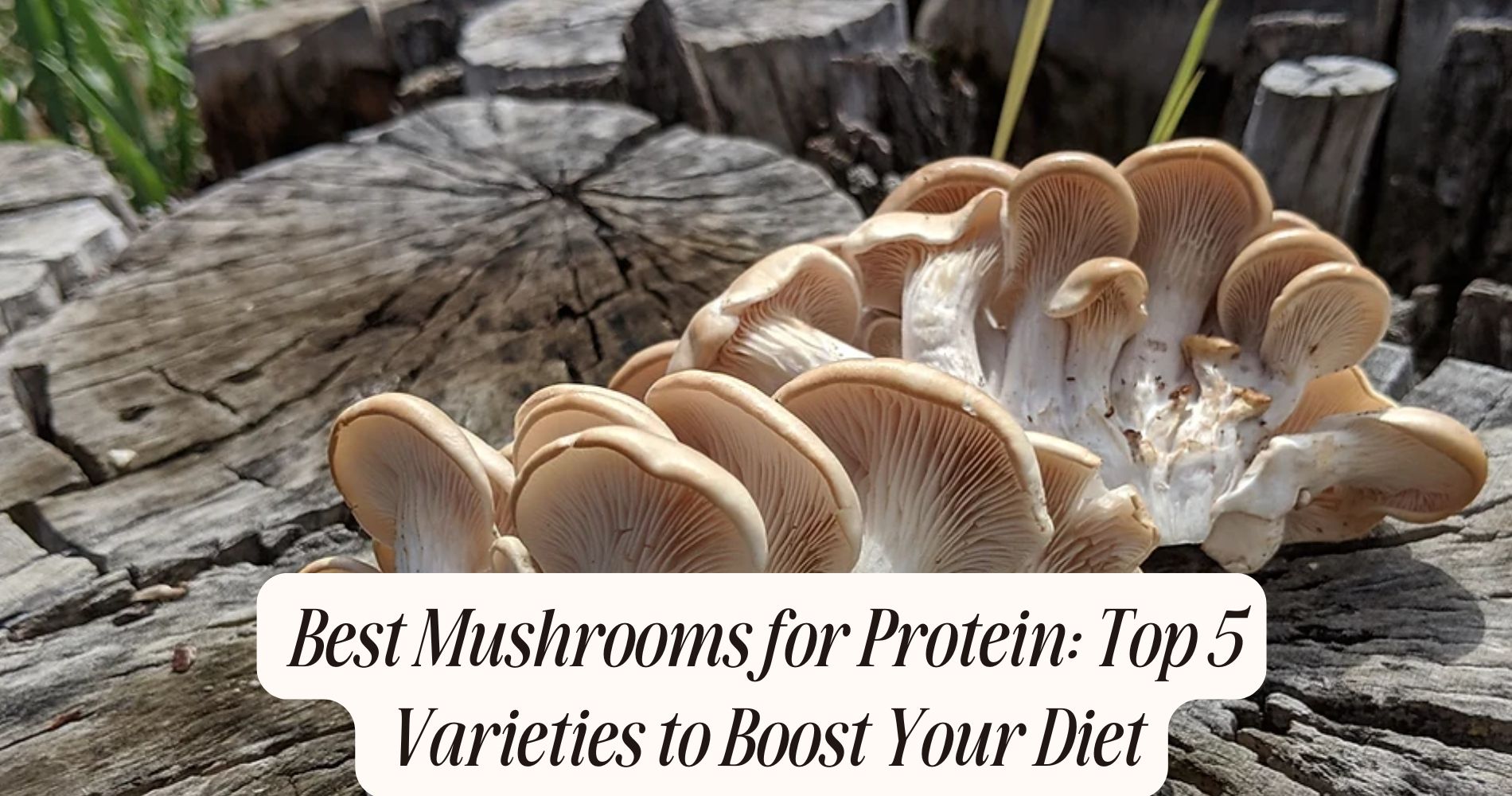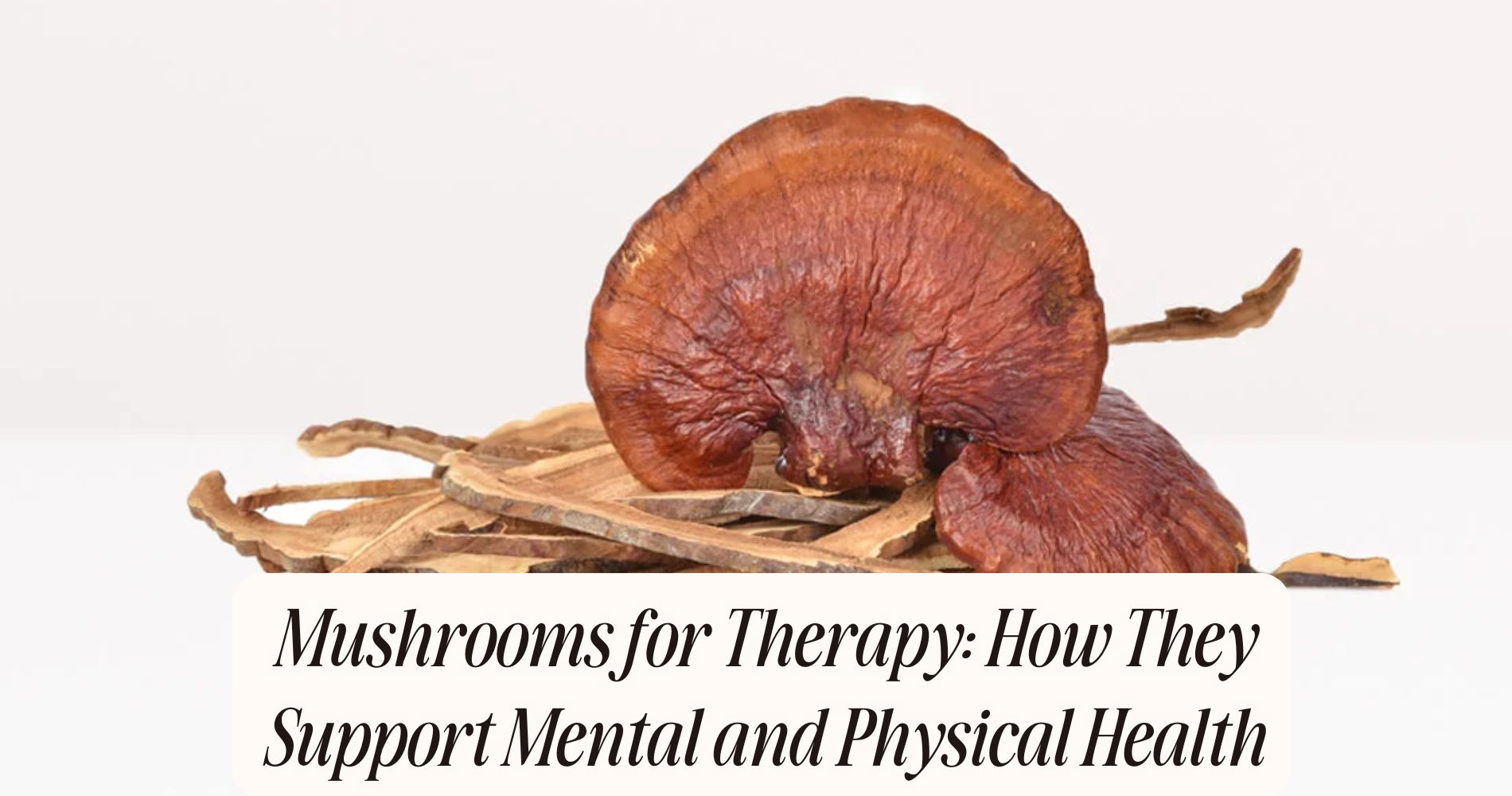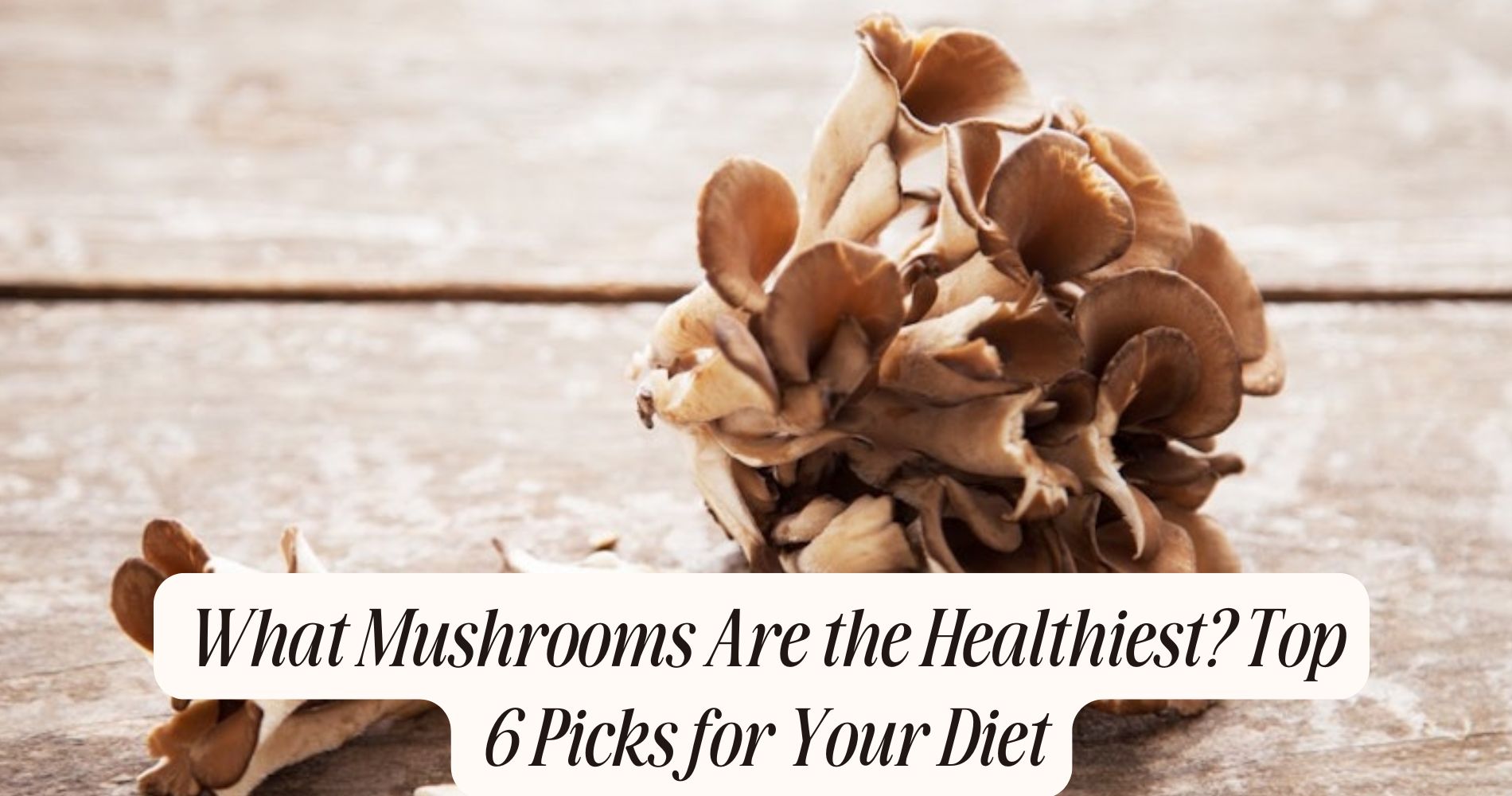
Best Mushrooms for Protein: Top 5 Varieties to Boost Your Diet
If you're searching for the best mushrooms for protein, these five varieties stand out. Shiitake and chanterelles deliver around 2.2 grams of protein per 100 grams, while portobello and oyster mushrooms pack in 3 to 3.3 grams, making them excellent plant-based protein sources. Maitake mushrooms not only contribute to your protein intake but also provide essential vitamins and minerals. These nutrient-dense mushrooms support immune health while adding rich flavors to your meals. Keep reading to learn more about how to incorporate them into your diet for a protein-packed boost!
Shiitake Mushrooms
When you're looking to boost your protein intake, shiitake mushrooms are an excellent choice. These flavorful fungi not only provide around 2.2 grams of protein per 100 grams but also come packed with essential nutrients.
Shiitake health benefits include their ability to support immune function and reduce cholesterol levels, thanks to their rich content of polysaccharides and compounds like eritadenine.

To make the most of shiitake mushrooms, consider these shiitake cooking tips: sauté them with garlic and olive oil for a delicious side dish, or incorporate them into stir-fries and soups for added depth of flavor.
Their umami taste enhances various meals, making them a versatile addition to your diet while boosting your protein intake.
Portobello Mushrooms
Shiitake mushrooms have their merits, but portobello mushrooms deserve recognition for their protein content and versatility. These meaty mushrooms pack about 3 grams of protein per cup, making them a great addition to your diet.
Portobello benefits extend beyond protein; they're rich in antioxidants and vitamins, promoting overall health.

You can enjoy portobellos in a variety of recipes. Grill them as burger substitutes, stuff them with quinoa and veggies, or slice them into stir-fries. Their robust flavor enhances any dish while adding nutritional value.
Experimenting with different portobello recipes can help you easily incorporate this powerhouse ingredient into your meals. So, whether you're looking to boost your protein intake or explore new flavors, portobello mushrooms are an excellent choice.
Chanterelle Mushrooms
Although often overshadowed by their more popular counterparts, chanterelle mushrooms are a fantastic source of protein and unique flavor.
These golden-hued fungi contain around 2.2 grams of protein per 100 grams, making them a valuable addition to your diet.
Beyond their protein content, chanterelle mushrooms boast numerous health benefits. They're rich in vitamins D and B, which support immune function and energy metabolism.
You can easily incorporate them into your meals with various chanterelle recipes, such as sautéing them with garlic and herbs or adding them to pasta dishes.
Their nutty, peppery taste elevates any dish, while their nutritional profile contributes to your overall chanterelle health.
Oyster Mushrooms
Oyster mushrooms, known for their delicate texture and mild flavor, provide an impressive protein boost, offering about 3.3 grams of protein per 100 grams.
These mushrooms aren't just tasty; they also come with numerous oyster mushroom benefits. Rich in antioxidants, they support immune health and may even aid in reducing cholesterol levels.

You can easily incorporate them into your meals with various oyster mushroom recipes. Try sautéing them with garlic and spinach for a quick side dish or adding them to stir-fries for extra protein.
They're fantastic in soups and salads, adding both flavor and nutrition. By including oyster mushrooms in your diet, you'll enjoy their unique taste while reaping the health benefits they offer.
Maitake Mushrooms
When you explore the world of edible mushrooms, Maitake mushrooms stand out not only for their unique flavor but also for their impressive nutritional profile. Known as "Hen of the Woods," these mushrooms are rich in protein and packed with essential vitamins and minerals.
The maitake benefits extend beyond nutrition; studies suggest they may help boost your immune system and lower blood sugar levels. You can easily incorporate them into your diet with simple maitake recipes.

Try sautéing them with garlic and olive oil for a delicious side dish or adding them to soups and stir-fries. With their versatility and health benefits, Maitake mushrooms are a fantastic addition to any meal plan.
Elevate Your Nutrition with SUPER MUSHROOM GUMMIES
Looking for a convenient way to enjoy the benefits of mushrooms? SUPER MUSHROOM GUMMIES by Well Gummies make it easy! Packed with 10 functional mushrooms, these delicious wild berry-flavored gummies support calmer energy, sharper focus, and a stronger immune system. No need for complicated meal prep—just chew and go! With no jitters or crash, they’re the perfect way to fuel your body and mind every day. Try them now and experience the power of mushrooms in a tasty, hassle-free form!
Frequently Asked Questions
How Do Mushrooms Compare to Meat for Protein Content?
Mushrooms offer decent protein sources, but they typically contain less protein than meat. Their mushroom nutrition includes essential nutrients, making them a valuable addition to your diet, especially for those seeking plant-based alternatives.
Are There Any Protein-Rich Mushrooms Suitable for Vegans?
Yes, there are several protein-rich mushrooms suitable for vegans. Varieties like shiitake, maitake, and oyster mushrooms are excellent vegan protein sources, offering essential nutrients while enhancing your meals with flavor and texture. Enjoy exploring them!
Can Mushrooms Be a Complete Protein Source?
Mushrooms can't be a complete protein source, as they lack some essential amino acids. However, their nutritional value is significant, providing fungal protein that complements other plant-based foods, enhancing your diet's overall protein profile.
What Cooking Methods Preserve the Protein in Mushrooms?
To preserve protein in mushrooms, try steaming mushrooms or using sautéing techniques. Both methods maintain their nutritional value while enhancing flavor, ensuring you enjoy the benefits without losing essential nutrients during cooking.
Are There Any Side Effects From Consuming High-Protein Mushrooms?
While high-protein mushrooms are generally safe, some may experience mushroom allergies or digestive issues. It's important to start with small amounts to assess your tolerance, especially if you're new to consuming various mushroom types.
Conclusion
Incorporating mushrooms into your diet is a smart way to boost your protein intake. Shiitake, Portobello, Chanterelle, Oyster, and Maitake mushrooms each offer unique flavors and nutritional benefits. Not only do they provide essential amino acids, but they also come packed with vitamins and minerals. By adding these varieties to your meals, you'll enhance both the taste and nutritional value of your dishes, making it easier to meet your dietary goals while enjoying delicious food.




